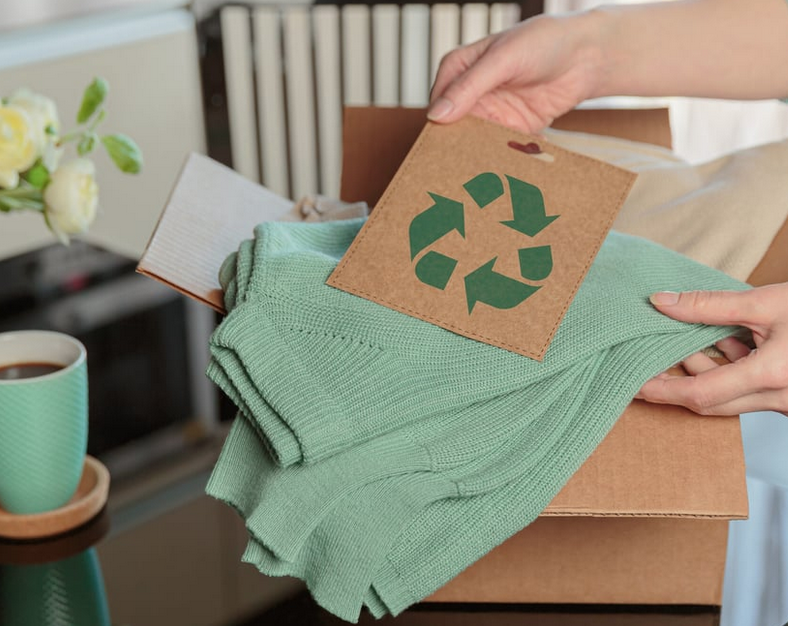
This joint programme, aimed at the industry and public authorities, is divided into three acts. Firstly, on the business side, it targets the promotion and development of circular supply. Secondly, it aims to transform consumer demand and behaviour and, finally, it does not forget the strategic issue of managing the end-of-life of textiles.
The first proposal is based on the ecological premium recently decreed by the French government, which will be managed by the ReFashion eco-organisation, financed by the sector to manage the end-of-life of products. The federation is proposing that this eco-modulation be extended to include the use of dormant stocks of local sustainable materials (linen, hemp, etc.), the recyclability of materials and the introduction of second-hand services. It is also calling for a malus, which ReFashion has been asked by the government to devise.
The federation is also calling for tax tools to be adapted to the constraints of circular fashion companies, i.e. tax to be reduced from 20% to 5.5% on products and services from the circular economy.
The group is also calling for the creation of an AP (principal activity) code dedicated to circular fashion. The fourth request concerns the creation of a circular tax credit, modelled on the research tax credit, for companies investing in defined experiments.
Another proposal is to facilitate the use of unused raw materials, with a ban on the destruction of materials, particularly leather, ordered by brands and which have not been used. It is also recommended that the calculation of the environmental impact of products using dormant stocks be reduced. The sixth proposal is to establish a better definition of circular fashion, particularly in response to fast-fashion brands seizing on upcycling codes to sell items made from virgin materials.
Training is not forgotten, with a proposal dedicated to teaching circularity in textile and fashion schools.
The eighth point concerns the obligation to trace materials (decree of 29 April 2022), which the federation would like to see extended to the fibre itself. Finally, the federation is calling for the repair and upcycling of textiles to be added to the list of arts and crafts, in order to highlight and help safeguard these skills.
How can we get consumers to change?
Another part of the joint programme focuses on consumers, from their expectations to their purchasing behaviour. To help them make more responsible consumer choices, the federation draws on the Digital Product Passport (or DPP) planned by Brussels for 2026, calling for the scheme to be harmonised with the French environmental labelling scheme introduced by the 2021 Climate and Resilience Act.
The eleventh proposal concerns fast-fashion, for which a clear definition is called for in order to better control and limit its environmental impact. At a time when the government is seeking to quantify the impact of fast fashion, the federation is proposing seven criteria: the pace of collections, the number of units, the time between design and sale, the frequency and intensity of promotions, the breadth of the range, reparability and respect for human rights.A major programme to raise awareness of the environmental impact of clothing and footwear is also proposed. The programme would target future and young consumers in schools and colleges, while advertising and lobbying campaigns would be better supervised, with messages of prevention and incentives to repair.
End-of-life products and recycling
The thirteenth proposal concerns support for the introduction of harmonised EPR (extended producer responsibility) schemes in the European Union. While in France the collection and sorting of end-of-life products is managed by the Refashion eco-organisation, “the development of the circular economy on a large scale will only be possible with the introduction of an EPR scheme at European Union level”, according to the federation.
The federation would also like to encourage brands to publish their unsold volumes. For the time being, these brands are only obliged to disclose figures relating to products sold to the eco-organisation. This is a blind spot that would deprive brands collectively of a valuable indicator for adjusting their orders in line with market realities.
The fifteenth proposal focuses directly on supporting the development of the collection and sorting ecosystem, in order to promote the development of textile recycling and facilitate access to recycled materials. The federation points out that “95% of the tonnages collected for recycling are currently exported”, and that access to stocks of recycled materials in France will be a strategic factor in establishing circular fashion in the design, manufacturing and consumption processes over the long term.
In April, the Circular Fashion Federation estimated the potential of circular fashion in France at €14 billion. A ThredUp-GlobalData study predicts that the sector will grow by 20% a year, reaching €64 billion by 2027.
Read more – Fashion Network
